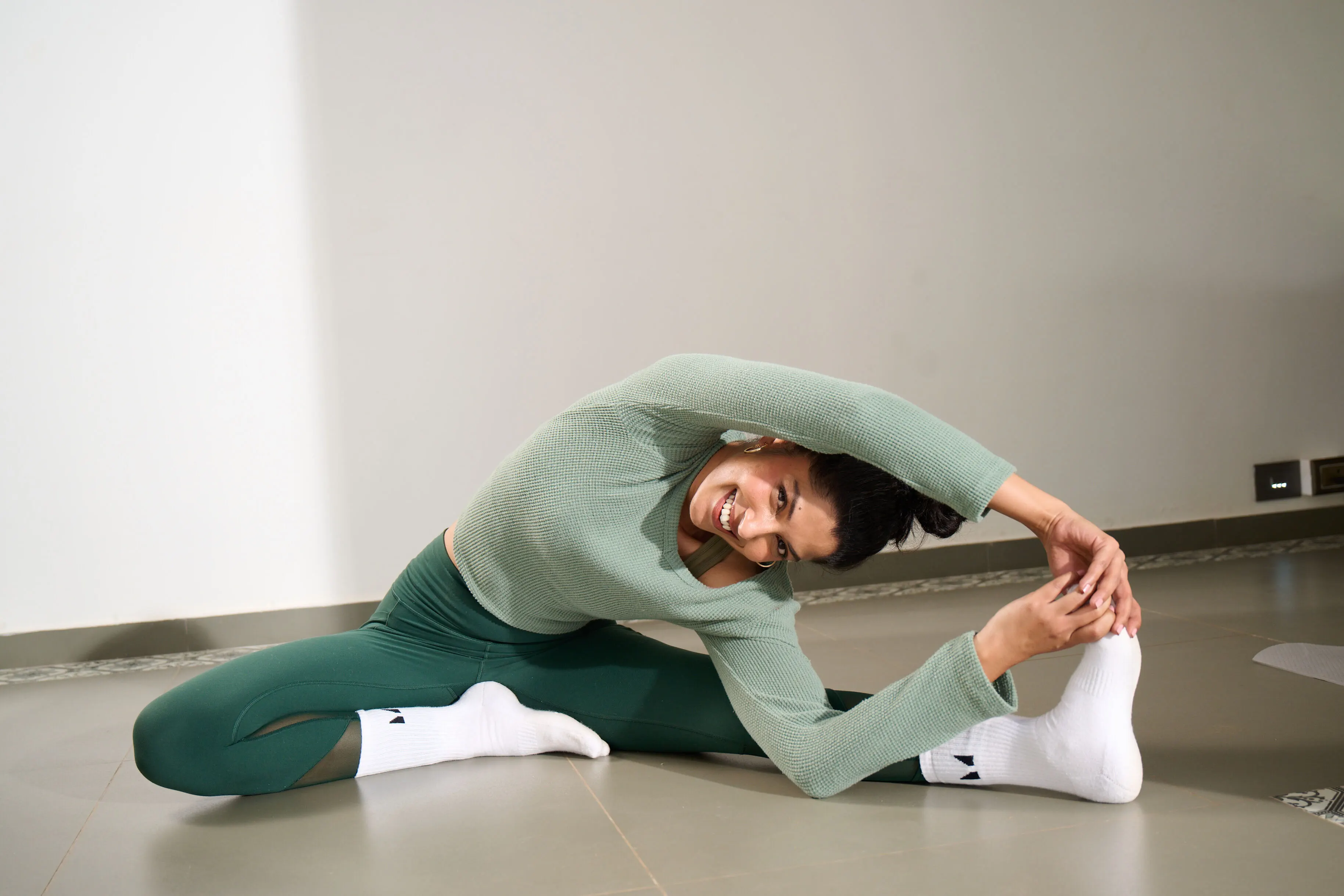Jnana yoga is known as the path of self-knowledge or the yoga of knowledge. ‘Jnana’ in Sanskrit means knowledge or wisdom, specifically self knowledge. It refers to the practice of attaining knowledge through self-study (Swadhyaya), contemplation and meditation. It is defined as the ‘awareness of absolute consciousness’. Jnana yoga is one of the many streams of yoga, that is, Karma yoga, Jnana yoga, Bhakti yoga and Raja yoga etc.
What is Jnana Yoga?

In Jnana yoga, the mind, through study and knowledge, enquiries its own true nature and it transcends the mind through thoughts and ego. The goal is to attain liberation from illusions, that is, maya (limiting thoughts and perceptions) and to achieve a union of the inner self (atman) with the oneness of all in the universe (Brahman).
Techniques such as self-study, self-questioning, reflection and meditation help you achieve this goal. Through one-pointed meditation on a single question of self-inquiry, one can remove the self-limiting concepts, perceptions and illusions. As you realize the illusory nature of maya (limiting thoughts and perceptions), you can see the oneness within everything.
The purpose of Jnana Yoga
The purpose of Jnana yoga is to progress on one’s journey towards attaining self-knowledge and enlightenment. An individual cannot attain unity of the self without knowledge and understanding of the self. Thus, to achieve this self-knowledge, Jnana yoga is important. It involves receiving knowledge, processing and analyzing it, understanding it, and detaching ego from the self in the process. Through detachment from ego, one can become stronger and closer to purity.
How to practice Jnana Yoga?
Practicing Jnana yoga involves collecting knowledge and information about the self. We begin to question who we are, dive deep into understanding our spirituality, processing and analyzing it, questioning its nature, what is true and what is not. With this curiosity and patience, we practice Jnana yoga and slowly progress in our journey towards awareness of the self. Any learning related to the self, is a practice of Jnana yoga.
The Four Pillars of Knowledge

There are four pillars of knowledge which build upon each other and must be practiced in a sequential order. These pillars help cultivate spiritual understanding and insights to reduce one’s suffering and dissatisfaction in life.
Viveka
This means discernment or discrimination. It is the process of continuously being able to distinguish between the real and unreal, permanent and temporary, self and non-self.
Vairagya
Dispassion or detachment refers to cultivating non-attachment or indifference towards materialistic things and worldly possessions. This is critical to detaching from the ego.
Shat-sampat
These are six virtues that train the mind and emotions to see beyond the illusions of maya. They are Shama (ability to keep the mind calm and peaceful), Dama (restraining the senses and training them to only use them as instruments of the mind, Uparati (withdrawing from activities which are not part of one’s duty, Titiksha (tolerating external, non-conducive situations), Shraddha (trusting one’s Guru) and Samadhana (having complete focus and concentration of the mind.
Mumukshutva
Refers to the desire to emancipate from suffering. It is about achieving liberation from suffering and means that you are completely committed to this path.
Three core practices of Jnana Yoga
As you study and master the four pillars of knowledge, you can start the three practices considered as the core of Jnana yoga. In the Upanishads, these three practices are defined as Sravana (hearing), Manana (reflection) and Nididhyasana (meditation). They lead to self-realization or Atma-Sakshatkara.

Sravana or hearing
Refers to experiencing the sacred knowledge from a teacher or Guru who guides the practitioners through discussions on various philosophy topics. By reading and studying the Upanishads the student gets a deep understanding of the Atman and Brahman concepts.
Manana
Refers to thinking and reflecting on these teachings. Students spend hours studying, thinking and contemplating on the various ideas and theories.
Nididhyasana
This refers to the practice of constantly meditating on the inner-self. It involves reflecting on the real meaning of the MahaVakyas, the primary mantras or ‘Great Sayings’ of the Upanishads. Through the continuous focus and concentration, the practitioner can obtain the union of thought and action, knowing and being.
Concluding thoughts
To practice Jnana yoga wholly, it is also recommended that one practices Hatha yoga, Karma yoga and Bhakti yoga. Together, all the streams of yoga will have a holistic impact on purifying the body and mind, and ensuring strong focus on the path of Jnana yoga.
Gradually, you can start to practice the four pillars of knowledge. Do not force yourself to go through all of them or be in a hurry. Spend time mastering each pillar and advancing at your own pace. As advanced practices, it takes time to progress. Have a teacher or Guru guide you along the way and to help you understand each aspect better.














.jpg)












%201.png)

%201.svg)






%201.svg)